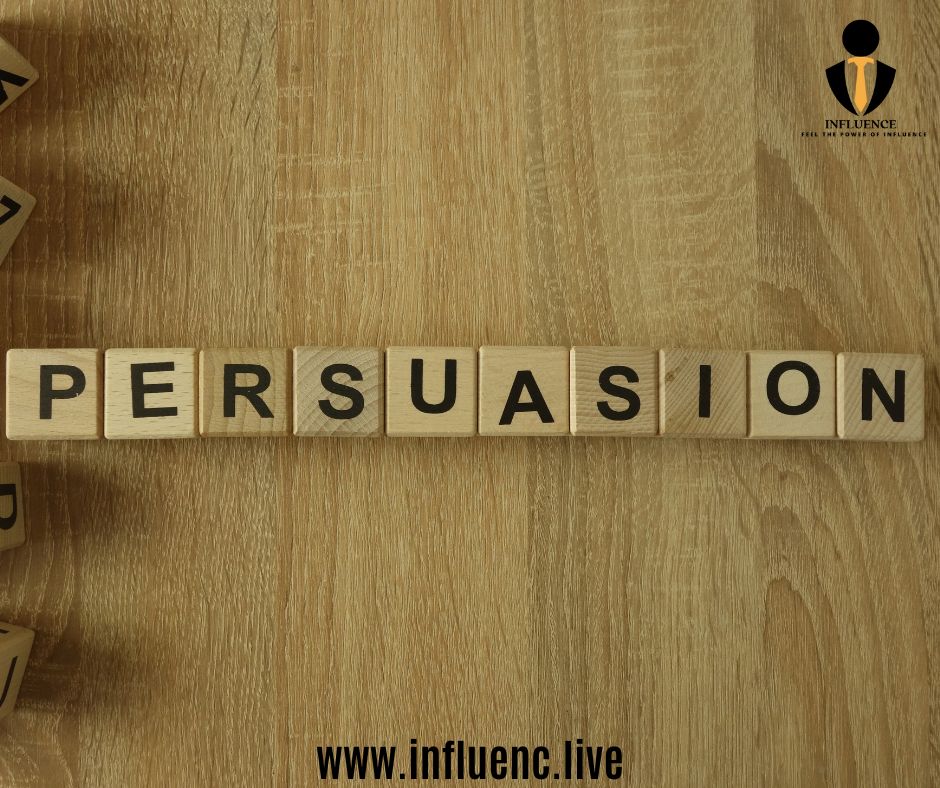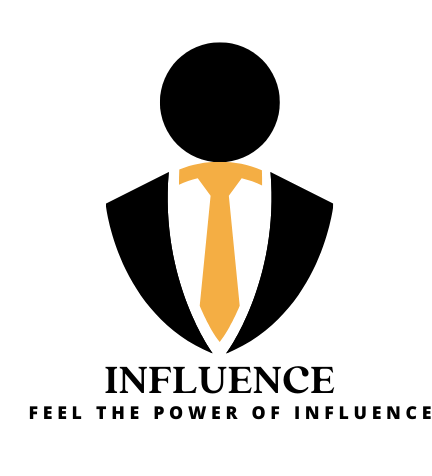The Art of Persuasion
Persuasion is essential for progress, understanding, and enforcing strong relationships.
Persuasion is an art and is a science as well. It refers to the ability to convince others and how to influence their thoughts, beliefs and behaviors. Through communication and various psychological techniques. . It’s more about establishing credibility and authority.
Persuasion is important for several reasons:
• It influences the opinions, attitudes, judgments, and behaviors of people. By persuading others, we can shape how they view important issues and shape their actions and decisions.
• It plays a key role in marketing, sales, advertising, politics, customer service, and many other fields. Persuasion is key to promoting and selling products, convincing voters, resolving disputes, and achieving many business and personal goals.
• It helps make progress on important issues. By using logical reasoning and evidence to build a persuasive case, we can convince others of the merit in ideas, proposals, and solutions that can benefit society as a whole.
• It promotes understanding. When we craft persuasive messages effectively, we do so by presenting rational arguments and evidence that others can understand and evaluate. This leads to a deeper sharing of knowledge and ideas.
• It motivates positive change. Persuasion can motivate people to change their ways for the better by showing them how change will benefit them and addressing concerns they may have. This helps drive progress in both individuals and groups.
• It strengthens relationships. When we can persuade someone through respectful debate and by addressing their concerns, it shows we understand their perspective. This builds trust and closer bonds between people.
• It leads to higher quality decisions. By considering multiple perspectives and evaluating the strength of arguments on multiple sides of an issue, persuasion leads to decisions and choices that are more well-reasoned and prudent. This benefits both individuals and organizations.
Transcript
Rania Lelah: Persuasion, yes, it’s an art, as you just said, and it’s a science as well. It refers to the ability to convince others and how to influence influence their thoughts, beliefs and behaviors. Through course communication and various, you know, techniques, psychological techniques. . It’s more about establishing credibility. It’s more about credibility and authority.
Pursuing someone starts by establishing new sales as a critical and trustworthy source.
And of course, It’s also how to use the pillars of persuasion as Aristotle named them two thousand three hundred years ago.
And he’s booked the art of Richard. He just said that there are some pillars of persuasion. . So it’s it’s from, you know, like, long time ago.
And it’s also about how to frame messages, how to put it in the right context in such a way, in a clear and concise way. In all. And it’s also about how to use social proof, urgency, and other techniques that can influence others and impact their lives.
Anchor: So it depends about the person, about the situation, and about, I think, above all logic. If if it’s logic, it’s going to be an easy task or no.
Rania Lelah: Okay. Going back, as I just mentioned earlier, that are still said that there are three pillars of persuasion.
The three pillars are credibility, emotions, and logic. It was, pathos, and logos.
So if we have any, like, message we want to deliver or if we want to have this influence above others of we we want to just convince others with something.
We need to address these three pillars. We want to like in our speech or presentations or our conversations to put all these three things.
First thing is to show our credibility, like of my appearance, speaking skills, my knowledge about the topic, and then some little bit of emotions like a story, emotion of a story.
And then, of course, we have to sit from a statistics and facts when it comes to the logic. Because as we are all different, some people just concerned about the emotion, the emotion, you know, and some other people just care about the logic. Yeah.
And of course, some other just care about how credible source you are. Why just just give me critical reason that to believe you or to be convinced with your votes or your product service.
Anchor: Could you say that there are persuasion skills and there are people who are good at that and others know?
Rania Lelah: Yes. Of course. Yes. It’s after it’s a learnable skill. Some people, of course, are born with this.
It’s like a talent. But some other people just learn to persuaders.
Anchor: This is my question. There are persuasion skills, which I can learn or there are people who are born with this ability.
Rania Lelah: Okay. The good news is it’s a learnable skill. And some other people just born with it. The most important thing is that to learn the skills of persuasion when it comes to how to communicate your message effectively how you just place yourself as a critical source to have the the exact knowledge and the speaking skills and the charisma.
And, you know, like, express yourself in a very logical, emotional, credible way. It’s yes.
It’s it’s there are some skills, you know, how to just use that social proof. How to also always address what’s in it for them because to be in order to be a persuader, effective power forward persuader You have to address the people’s needs and wants.
It’s not about me as a speaker. It’s about the receiver. I have to connect my values to your value.
Anchor I think I should be an expert in human nature to be a good persuader.
Rania Lelah: Not an expert. They may have the the the the enough information, you know, and knowledge about, yes, the the the person’s in front of you.
You know, you you have to at least know their needs and thoughts, know their values.
And that’s why if you just notice that every persuader, as the first of if a speech or presentation, He always asks some questions to figure out about the natures and about the characters and the personalities and values of his audience or her audience.
Anchor: Or this can be included under the very general umbrella of social intelligence.
Rania Lelah: Yes. It’s kind of intelligent. In order to be persuaded, you will need to be emotional intelligent and social intelligent.
Anchor: You know, you know, Ranya, when I know that, you are a of course, I’m going to be honored to have you, and I know that this topic which is the art of persuasion, which is in my humble opinion, very important. The first question which came to my mind, there were people who are saying that a clever person with the one or a very smart person with the one who can persuade you with something he or she himself or herself is not persuaded of.
True? Or this is another personality which which we should not deal with.
Rania Lelah: No. It’s okay. A huge part of persuasion. It’s just going against, it’s maybe, the social norms .
So the most important thing how to connect how to know your values and how to know your maybe the things you need or you think you’ll write a new interest and then connect to this with you.
Of course, the most important thing to handle objection I have to as a persuade, I have to do my homework first. I have to know more about your background and your needs and wants and all these things.
Plus, what kind of objects you may tell me about. And then I have to search for the answers of these objections. And then, at the right time, when you just tell me that maybe I’m not convinced with what you say.
I have other arguments or whatever. in this moment, I will give you some reasonable, logical answers, with emotions, with logic, with facts, with the statistics , and this crucial moment you’ll be convinced.
Anchor: Can we do a a small or a brief comparison between a good persuade and a good negotiator, or both are the same?
Rania Lelah: Maybe in a general on a general perspective, you are the same because in order to be a good negotiator, you individually, you have to be good persuaders. But you know, the most common thing here is Win-Win situation.
That’s what differentiates between, like, good or good persuasion or persuasion anti manipulation. Good persuasion that now I want to I you and me want to just end up with, win win situation, I will win a you will win.
But when it comes to manipulation or bad persuasion or these bad behaviors, you know, it it it runs on or based on win-lose. In order to when, you have to lose. You know?
Anchor: So yeah. And regarding some jobs, I mean, which which which requires the skills of communication, of dealing with people, of meeting with people, I mean, face to face daily like us, like a teacher, for example, like someone in HR in any company, for example, if this one of the very important or the first characteristics or criteria of their character, And if so, this is something which we should teach our children since they’re very early childhood.
Rania Lelah: Okay. First things first. Everyone just if you just ask anyone about what’s your dream, what’s your goal in this life, the first thing that he will say that I want to influence others.
I wouldn’t have this control of you know, I I have this power to control others and to convince them with anything.
Yeah. But we just forget that in order to influence others, you have to influence yourself first so you you need to raise yourself awareness and work on your own motions.
Working on these skills to have this, you know, like, solid skills to influence or to be able to influence others as well.
Yeah. So yes, we tend to tell our children to have this power. But first, do it with ethics. And we can just, like, you know, chop it or divide it to small tasks or smaller skills. Right?
First of things as communication, how to communicate your messages more clearly, how to express yourself in a powerful way, and then how to use your body language, how to manage your emotions, how to just think or how to feel empathy about the other And how to accept objection or deal with criticism?
It’s Number one, because you all suffer from criticism , you know, like, have bad bad effects when it comes to constructive and destructive criticism as well.
Anchor: We do always have interesting discussions dear. So I’m going to leave you, but with a promise to see you here. Life in our studio to speak and in detail more about us, about our human nature. Because this is very important and I think also our viewers are going to enjoy it. Thank you very much.
Rania Lelah: You’re welcome.



